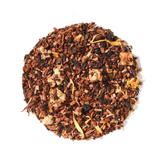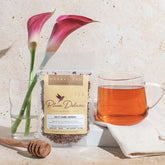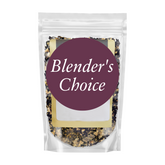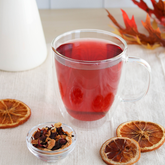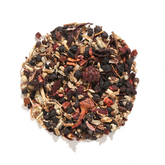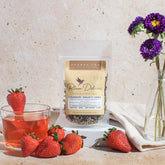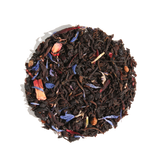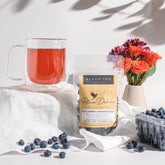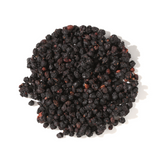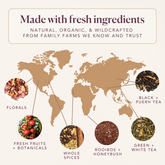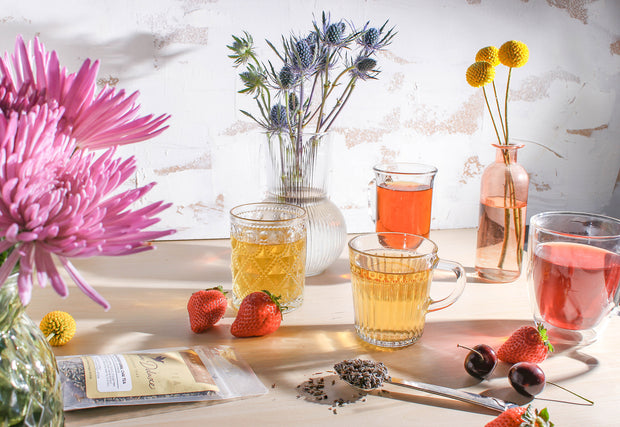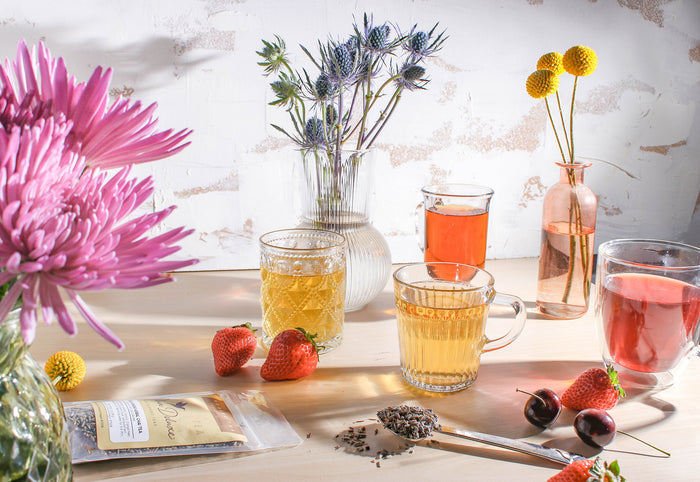Whether you’re a veteran tea lover or a newcomer to tea appreciation, you may have heard the term "decaf" tea thrown around. Decaf is a shortened term for decaffeinated tea and is used when caffeine has been removed from a beverage.
If you’re wondering how much caffeine in decaf tea, as opposed to regular tea, you’ve come to the right place! Today we’ll be talking about caffeine, and decaffeinated tea. How much caffeine is really in these blends? How is the caffeine removed? Let's dig in.
How Much Caffeine Is In a Cup of Tea?
Caffeine is a naturally occurring chemical found in many different foods and drinks including tea, coffee, energy drinks, and chocolate. It can give you a burst of energy, improve your mood, and increase your blood pressure and heart rate. Whilst caffeine isn’t inherently bad, too much of it can be harmful, particularly to those with caffeine sensitivities. Trouble sleeping or jitters are often associated with drinking beverages with caffeine, especially if consumed close to sleeping hours.
Standard black tea generally has around 55mg of caffeine in an eight ounce cup. This range varies depending on a number of factors including the age of the leaves and the exact tea variety. Green tea has between 30 to 50 mg of caffeine in an eight ounce cup. While tea does not have as much caffeine in it as coffee or other substances, you still may find yourself affected by caffeine hours after enjoying your nice cup of tea. One of the effects most people seem to experience with caffeine is sleeplessness.
If you struggle sleeping after drinking tea in the afternoon or evening, you can try to avoid sleeplessness by ensuring you have your last caffeinated beverage around 4:00 pm. The caffeine will be active in your system at its peak for most of the next five hours; by the time you’re ready for bed the caffeine levels will be low enough that you’re able to drift off to sleep without any troubles.
Another way to combat the issue is by swapping to decaf tea for your late afternoon or evening brew. If you enjoy the flavor of black tea but are concerned about the health impacts of caffeine, this is a great option to explore.
If you’ve seen decaf teas advertised, but aren’t really too sure about them, read on to find out a bit more about the process involved in decaffeinating tea.

How Is Tea Decaffeinated?
There are a number of ways that tea is decaffeinated. Sometimes, the tea is soaked in methylene chloride, which bonds the caffeine molecules to the methylene molecules. While this method does provide good retention of the flavors in the tea, it is not necessarily believed to be the healthiest method of decaffeinating teas. Some countries do not allow tea to be imported if it has been decaffeinated using this method.
Another method commonly used is ethyl acetate decaffeination. The process of this method is similar to that of methylene chloride treatment, but it is a more natural alternative. Ethyl acetate naturally occurs in tea, and so is a safer method. Unfortunately, it is difficult to remove the taste of ethyl acetate from the tea after it has been treated and can leave a chemical aftertaste.
Carbon dioxide (CO2) tea decaffeination is the safest method of tea decaffeination. This is the method all of Plum Deluxe's decaf blends are made with. The process involves essentially pressure cooking tea leaves with the naturally occurring gas CO2. In this high temperature, high pressure environment, the carbon dioxide reaches a solvent state where it attracts and removes the caffeine molecules from the tea leaves. Since the molecules that hold the flavor of the tea are larger, they remain intact within the tea, leaving us with a decaffeinated tea that is safe and holds a great flavor.

How Much Caffeine In Decaf Tea?
After the decaffeination process, teas generally hold one to two grams of caffeine per hundred grams. This tiny amount generally has no discernible effects and ensures we can enjoy a nice black tea any time of the day or night, without worrying if you’ll sleep later on!
My favorite Oregon Breakfast Decaf Tea has a full black tea flavor with a zing of orange to get your day started on the right foot.
No Obligations Decaf Tea is a warm and comforting spiced black tea with hazelnut and vanilla notes. Enjoy black or with a dash of milk — however you like it!
For dreams of an island getaway, Wonder-full Pomegranate Decaf Tea is a lovely black tea with the fruity sweetness of pomegranate.
Plum Deluxe's decaffeinated blends are clearly labeled as decaf. There are also many blends available that have no caffeine in them at all! These caffeine free blends are herbal and naturally caffeine free. Check the product descriptions to ensure the tea you’re purchasing is decaf or caffeine free.
Caffeine is not inherently bad and can be useful in promoting alertness in your day. If you’re finding it difficult to sleep or are experiencing negative effects from your cup of tea, it can be worth considering switching to decaf. Hopefully today’s post has helped you understand how much caffeine in decaf tea, and remain confident in your tea selections.
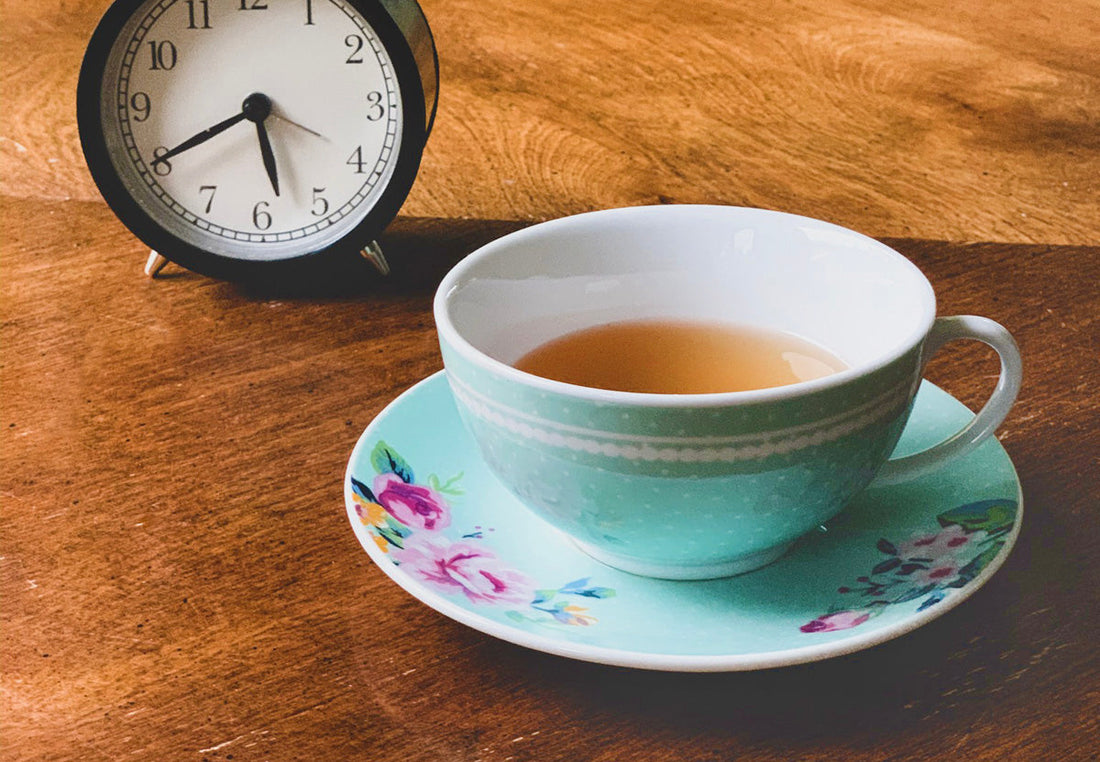
![Spring Break Tea Variety Pack [6-Pack Variety of Flavors]](http://www.plumdeluxe.com/cdn/shop/files/spring-break-pack.jpg?v=1740682266&width=165)

